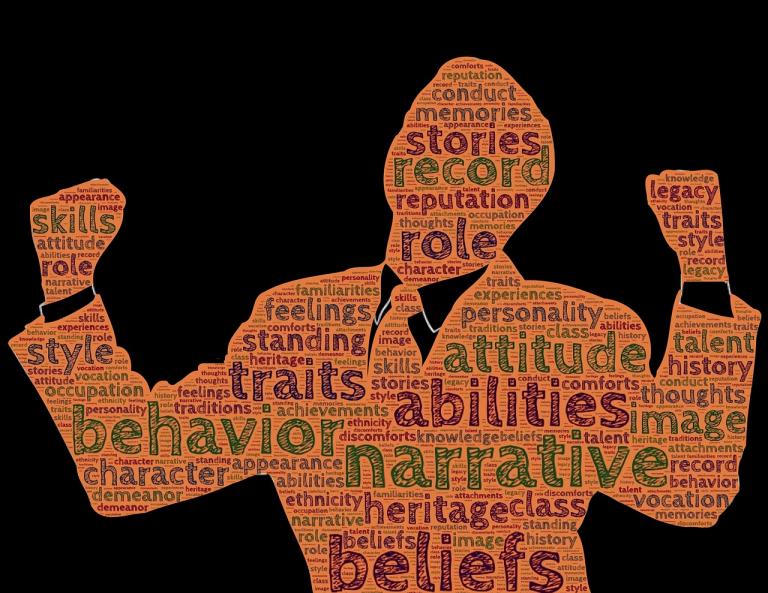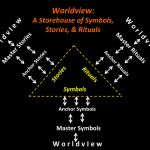“We are our memories,” so we think. It turns out that’s not true. Various studies indicate the things we honor and shame determine our identity more than do our memories.

Morality defines “me”
In her book Passing Judgment, Terri Apter summarizes the findings of several empirical studies. She writes,
In fact, our judgments are more integral to who we are than our memories. It is widely recognized that brain damage can change one’s personality: those who suffer dementia, for example, are sometimes perceived as no longer being the same person. The perception of whether or not someone is the “same person,” though, depends far more on those responses and preferences and interactions shaped by judgment than on retention of their memory.
This is rather intuitive once we think about it. The problem, however, is people tend to speak more about our memories and experiences than value judgments. When we recognize that we are what we praise and blame, we discern the critical role of honor and shame in shaping our identity, indeed, our entire life.
“Identity” according to whom?
Research studies have considered the issue of identity from two perspectives:
(a) Person X’s view of self
(b) Others’ view of Person X.
My own sense of identity could differ from my identity in the eyes of others. In both cases, however, one’s identity eventually circles back to one’s moral values, i.e., what a person honors or shames, praises or blames.
When studying dementia patients, researchers observed,
“As long as core moral capacities are preserved, perceived identity will remain largely intact.” In fact, they add, “The primacy of morality in determining identity holds up even for dementia types in which moral impairment is not the characteristic or dominant feature.” [1]
In other words, a dementia patient’s relatives and friends regarded him/her as a “different person” when their moral behaviors changed, not when they lost memories.
An individual’s sense of “identity”
What about an individual’s own sense of identity. A group of researchers found “the degree to which [people] judge [whether] changing characteristics will change identity is based on the extent to which those characteristics contribute to communal ties.”[2]

In such cases, the most fundamental characteristic that determines identity is the group’s moral beliefs. Yet, not all moral beliefs have the same influence on identity:
“widely shared moral beliefs (e.g., about whether murder is wrong) to be more central to identity than controversial moral beliefs (e.g., about whether abortion is wrong) because widely shared moral beliefs are more strongly linked with community relationships.
When pondering a question that draws attention to the self—who am I?— even adults in an individualistic culture appear to focus on their connections with other people. Uniting psychology and philosophy, the current work highlights the joint role of morality and community in judgments of identity.”[3]
What constitutes a “shared moral belief” and a “controversial moral belief” depends on the particular social group. Within the general public, the two examples above (murder and abortion) typify “controversial” from “shared” beliefs.
However, in the church, we would need to adjust the examples, since a vast number of Christ-followers disapprove abortion. Perhaps a “widely shared moral belief” would be the need to be faithful to one’s spouse; “controversial moral beliefs” might include drinking alcohol (without getting drunk), using pirated movie or software, buying expensive luxury cars, maybe gambling, etc.
 As a Christian, faithfulness to one’s spouse is a widely shared moral belief and so more strongly links us with community relationships. Committing adultery is far more likely to change a person’s sense identity than would changing one’s view on watching Rated-R movies.
As a Christian, faithfulness to one’s spouse is a widely shared moral belief and so more strongly links us with community relationships. Committing adultery is far more likely to change a person’s sense identity than would changing one’s view on watching Rated-R movies.
It should go without saying that neither I nor the above researchers refer to temporary identities, such as being a member of a weekend softball team, etc. We describe a person’s “essential self.”[4]
Can we separate morality and memories?
Briefly, I’ll respond to an objection I know people will raise. “You can’t separate morality and memory,” they’ll say. We certainly cannot. But their having a close relationship does not make them indistinguishable.
Here’s a simple way to look at it: Having a moral perspective (i.e., a sense of honor-shame) entails having various memories (Moral –> Memories). By contrast, retaining memories does not necessarily imply keeping one’s moral sensibility.[5]
Honor & shame are fundamental to identity
In summary, our identity is rooted in our honor-shame perspective. What we regard as praiseworthy and blameworthy determines both our personal sense of identity as well as the way others judge our identity. These observations should wake us up to the crucial role of honor and shame in forming who we are and thus the work of gospel ministry.
[1] Nina Strohminger and Shaun Nichols. “Neurodegeneration and Identity.” Psychological Science. Vol. 26, no. 9 (2015): 1469–1479. A concise summary of above article is Bobby Azarian, “Morals, Not Memories, Define Who We Are” Scientific American. September 29, 2015.
[2] Heiphetz et al. “The Role of Moral Beliefs, Memories, and Preferences in Representations of Identity.” Cognitive Science 41 (2017): 746–47 [744–767].
[4] In fact, one article on the subject by Nina Strohminger and Shaun Nichols is titled “The essential moral self.” Cognition 131 (2014): 159–171.
[5] Logically, this would be a fallacy of affirming the consequent whereby one mistakenly thinks memories –> morality.













